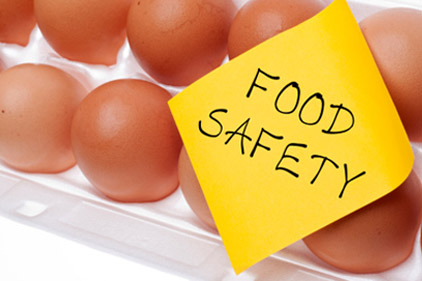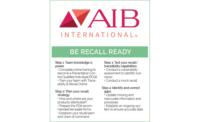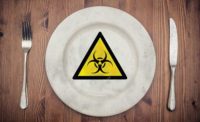When a food recall happens, food companies and U.S. federal regulatory agencies must take steps to ensure that consumers are kept safe. Food recalls are the method by which companies and government regulators try to improve food safety by removing products from distributor inventories, store shelves and consumers’ kitchens.
The U.S. Food and Drug Administration (FDA) is responsible for the regulation and safety standards of roughly 80% of the food supply in the U.S., both domestic and imported foods. The FDA is also responsible for overseeing the safety of pet foods. The remaining 20%, primarily meat, poultry and some egg products, is regulated by a branch of the U.S. Department of Agriculture (USDA) known as the Food Safety and Inspection Service (FSIS).
The agencies can become aware of a food recall in one of several ways:
- A food manufacturer or distributor discovers a food safety issue and contacts the FDA or FSIS directly.
- Inspection of a manufacturing facility or importer by the FDA or FSIS reveals a potential cause for recall.
- A food product or manufacturer fails testing carried out through FDA or FSIS sampling programs.
- In the case of illness associated with a specific food product, individual state health departments will contact the Centers for Disease Control and Prevention (CDC), which in turn contacts the FDA or FSIS.
If the FDA or FSIS requests that a product be recalled, the responsibility to take action falls on the company that manufactures the product. If the company doesn’t respond to FDA/FSIS requests for recall, legal action can be taken.
New authorities granted in the Food Safety Modernization Act (FSMA) of January 2011 give the FDA the power to shut down operations at food production facilities if it deems there’s a significant threat to public health. It exercised this authority for the first time in September 2012, when it shut down the Sunland Inc., peanut processing facility in Portales, N.M., when it found Salmonella contamination.
Once a company initiates a recall, it’s the responsibility of either the FDA or FSIS to evaluate the potential severity of the recall and make sure that all reasonable efforts to remove or correct the problem are being made. The agencies will also seek media publicity when the situation warrants widespread and rapid public awareness. However, the FDA and FSIS usually don’t deem it necessary to alert the media to recalls, but instead post every recall to their websites for consumers to seek out at their convenience.
The FDA or FSIS determines when to terminate a recall, and recalling companies can request a recall termination by submitting a written request or waiting on the agency to determine recall termination.
Once a reasonably expected amount of the offending food product has been recovered or corrected, the product can be classified as safe. Written notification that the recall has ended is then sent to the recalling company by the responsible agency. Once a recall is initiated, the recalling company submits its recall strategy to be reviewed by the FDA or FSIS. This should include the depth of the recall, the type of press release to be issued and proposed effectiveness checks.
Because food recalls are expensive and stigmatizing for the recalling companies, food manufacturers are usually highly motivated to clean up their mess as quickly as possible. It’s in the manufacturers’ best interest to do everything in their power to maintain and regain consumer confidence during recall events.
More information can be found at www.foodsafetynews.com.
Source: www.foodsafetynews.com




